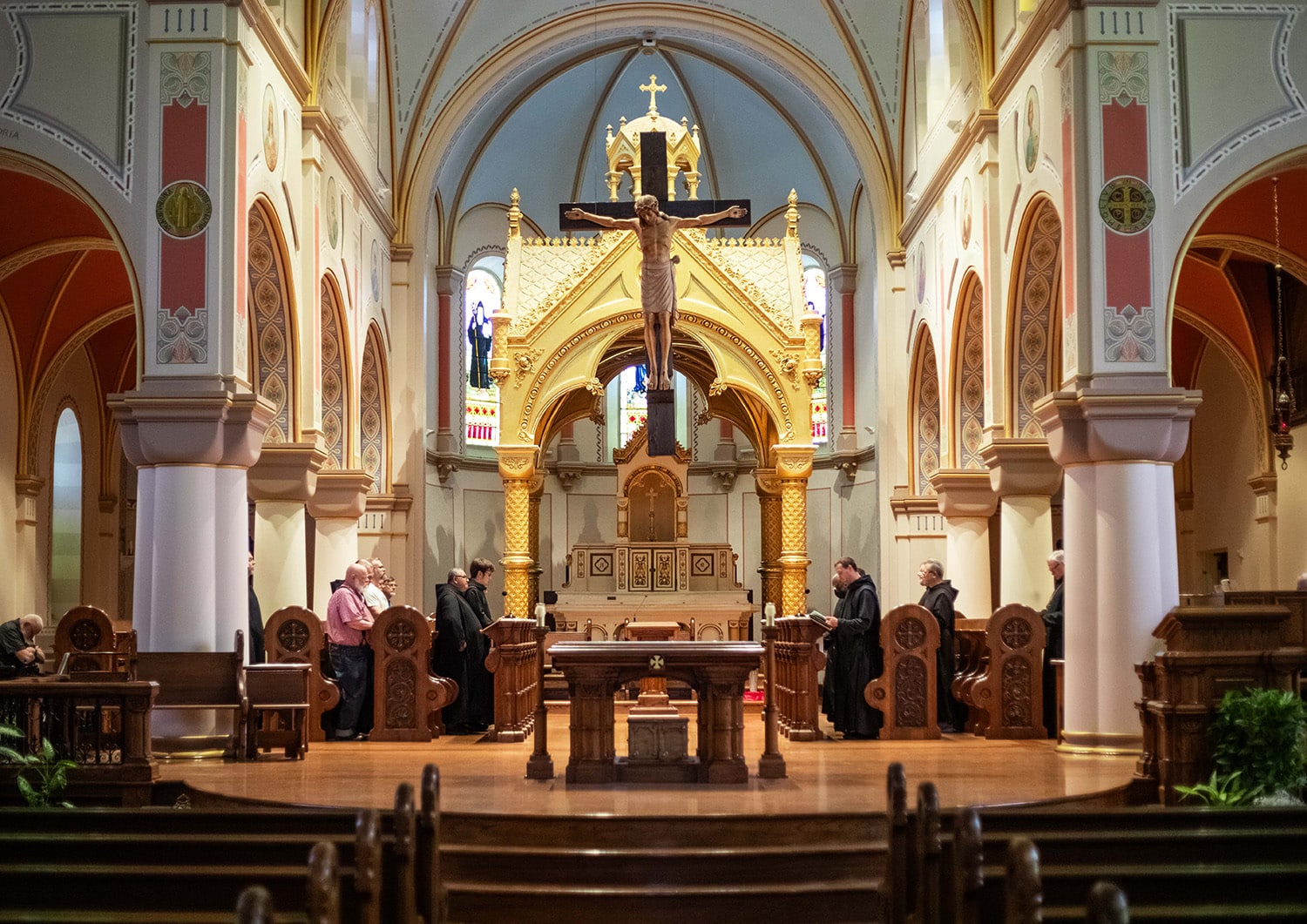Once when I was in Rome with a group from my Jesuit parish, our pastor celebrated Mass for us in the room where St. Ignatius of Loyola, founder of the Jesuits, died. The building housed his final home and offices, and displayed relics of Ignatius, including the saint’s well-worn shoes.
I had greatly anticipated the privilege of attending that Mass. I expected a moving experience. I think I hoped to be touched by God in some special way.
Guess what? I was happy to be there. But there were no tears, no special emotions, no remarkable insights. I felt disappointed.
Understanding consolation and desolation
But as someone who knows a bit about Ignatian spirituality, I later realized what had happened. Ignatius tells us about consolation, as well as desolation. Consolation is a time when you sense the presence of the Lord in a special way. It’s a gift. I don’t get to choose or demand those blessed moments. I just need to be open to them and heed them.
Remember Elijah (1 Kings 19:11-12)? Elijah waited for God in the wind, the earthquake, the fire, but encountered God in the gentle whisper. Perhaps that’s not what he expected. A mighty wind, the earth shaking — surely God must be there. Of course, God is ever-present, but God chooses the moment when that presence becomes palpable. Our role is to be listening if God comes in a whisper.
Ignatian spirituality
Ignatian spirituality, a fundamental part of a Jesuit’s life, has become very popular and accessible to lay people since the Second Vatican Council. The “Spiritual Exercises of St. Ignatius” are, for Jesuits, a 30-day silent retreat. But most of us can’t sequester ourselves at a retreat house for 30 days.
Fortunately, the 19th annotation of the Exercises provides an opportunity for the rest of us. It’s a way to make the exercises amid everyday life. I’ve done it twice, over a period of several months, with a trained director. There’s a commitment to prayer and reflection each day.
Many of us become frustrated with our prayer life. My own morning prayer often becomes a muddle of distraction as I try to silence myself.
Encountering Jesus in the deserted marketplace
In a little book called “Praying with Jesuits,” I found a piece by the Jesuit theologian Karl Rahner that hit home with me.
He wrote, “When I flee from prayer, it’s not that I want to flee from You, but from myself and my own superficiality.” Am I fleeing from a deeper truth about myself?
Rahner goes on to say, “I don’t want to run away from Your Infinity and Holiness, but from the deserted marketplace of my own soul.”
If one of Vatican II’s great theologians can describe his struggle in these terms, I decided to sink into his metaphor.
I found myself in a scene that looked like a fair or market had just ended. There were still tables set up, and here and there a discarded napkin floated through the breeze. The merchandise, the food, the people were gone. Here was my soul, deserted.
But wait, sitting on one of the remaining chairs was Jesus. It seemed he had waited for me. I sat down quietly with him. It was consoling. The distractions went away, and when they returned, I could turn them over to Jesus.
Resources for Ignatian prayer
Ignatian prayer uses the imagination in this way. To explore more about Ignatian spirituality, Creighton University offers a website that includes a guide to the “Online Retreat,” a form of the 19th annotation, and much more about Ignatian prayer.
It’s a good website to visit when you’re in a prayer rut, or if your soul feels like a deserted marketplace.







